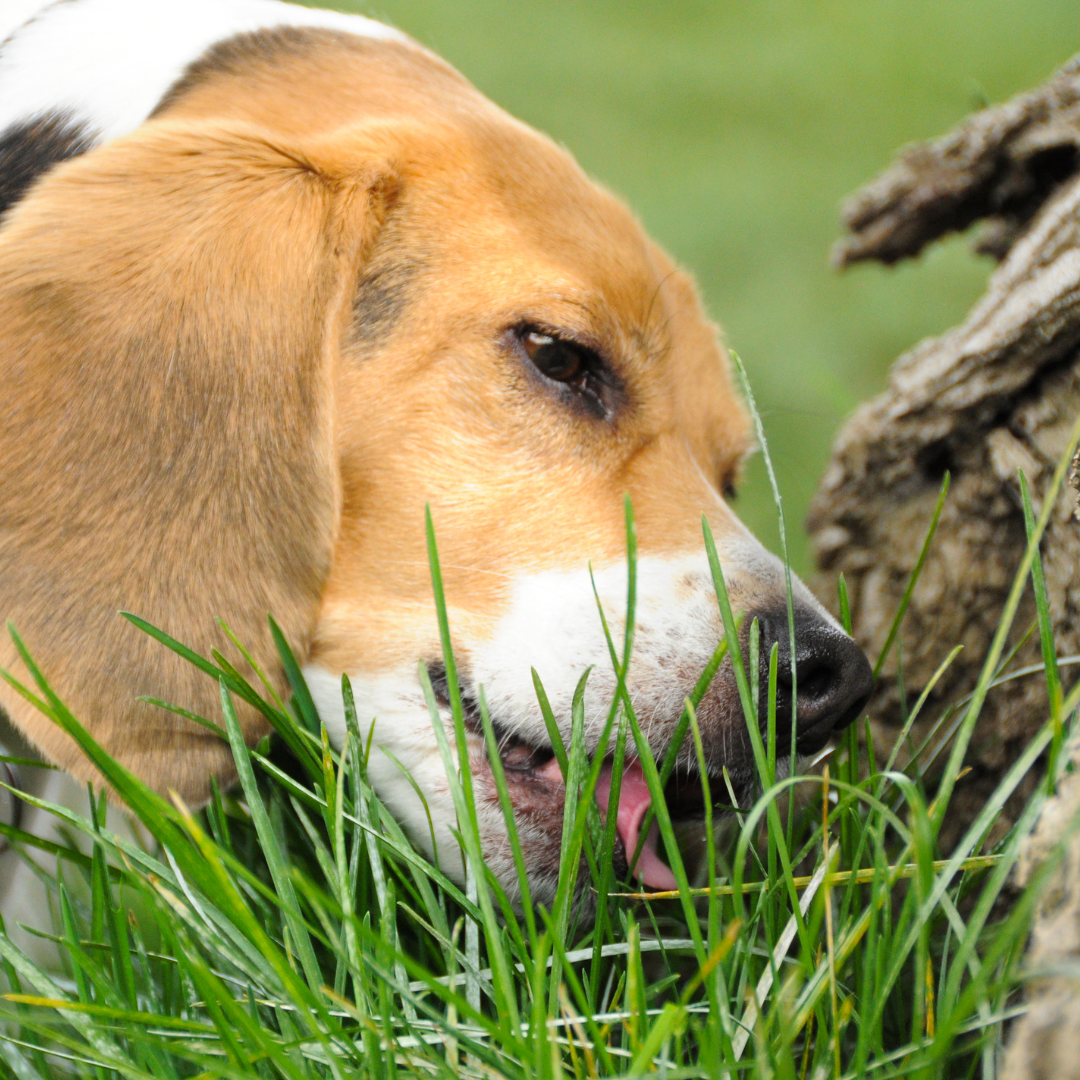
The Green Mystery: Why Do Dogs Eat Grass?
Share
Dogs are known for their peculiar behaviours, and one of the mysteries that puzzle pet owners is their tendency to munch on grass. While it may seem like a quirky and harmless habit, the reasons behind this behaviour are not entirely clear. In this blog post, we'll explore three potential explanations for why dogs eat grass.
- Dietary Instincts and Nutrient Deficiency:
One common theory suggests that dogs are instinctively driven to consume grass as part of their evolutionary diet. In the wild, canines are omnivores, and their ancestors often included plant material in their meals. Grass might provide essential nutrients, fibre, and minerals that are lacking in their regular diet.
When domestic dogs feel a nutritional gap, they may instinctively turn to grass as a natural source of vitamins and minerals. This behaviour could be a way for dogs to supplement their diet, much like how humans might crave certain foods when their bodies are deficient in specific nutrients.
However, it's crucial to note that most commercial dog foods are formulated to meet a dog's nutritional requirements. If a dog consistently craves grass, it might be a signal that their diet needs adjustment. Consultation with a veterinarian can help determine whether the dog's nutritional needs are being met and if dietary changes are necessary.

- Digestive Aid and Inducing Vomiting:
Another popular belief is that dogs eat grass to help with their digestion or induce vomiting. In some cases, when a dog has an upset stomach or feels nauseous, they may instinctively consume grass to trigger vomiting. This act may help them expel something irritating or harmful from their stomach, providing relief.
In a study conducted by the University of California, Davis, it was found that only about 25% of dogs that ate grass showed signs of illness before eating it. Moreover, less than 10% of dogs displayed symptoms of illness after consuming grass, suggesting that this behaviour is not always linked to sickness or digestive issues.
While occasional grass consumption might be a natural response to an upset stomach, persistent vomiting or signs of distress should prompt a visit to the vet. Chronic vomiting could indicate an underlying health problem that requires professional attention.
- Behavioural and Psychological Reasons:
Dogs, like humans, engage in various activities for psychological stimulation. Some experts believe that eating grass could be a behavioural response to boredom or anxiety. Dogs may find the act of grazing on grass comforting or enjoyable, similar to how humans might engage in stress-eating or fidgeting.
Additionally, dogs may observe their owners gardening or interacting with plants, leading them to mimic these behaviours. Dogs are highly social animals and often learn by watching and imitating human actions. If a dog sees its owner tending to plants, it might develop an interest in chewing on grass.
In some cases, dogs may simply enjoy the taste and texture of grass, leading them to indulge in this behaviour as a form of sensory exploration. However, if excessive grass-eating is a concern, providing alternative forms of mental stimulation, such as toys, playtime, or puzzle feeders, can help address the underlying psychological need.

The mystery of why dogs eat grass continues to intrigue pet owners and researchers alike. While various theories attempt to explain this behaviorr, it's essential to remember that individual dogs may have different motivations. As responsible pet owners, staying attuned to our dogs' habits and consulting with veterinarians can help ensure their well-being and address any underlying health or dietary concerns. Whether it's a nutritional instinct, a digestive remedy, or a form of psychological fulfilment, understanding the reasons behind this common canine behaviour can deepen the bond between humans and their furry companions